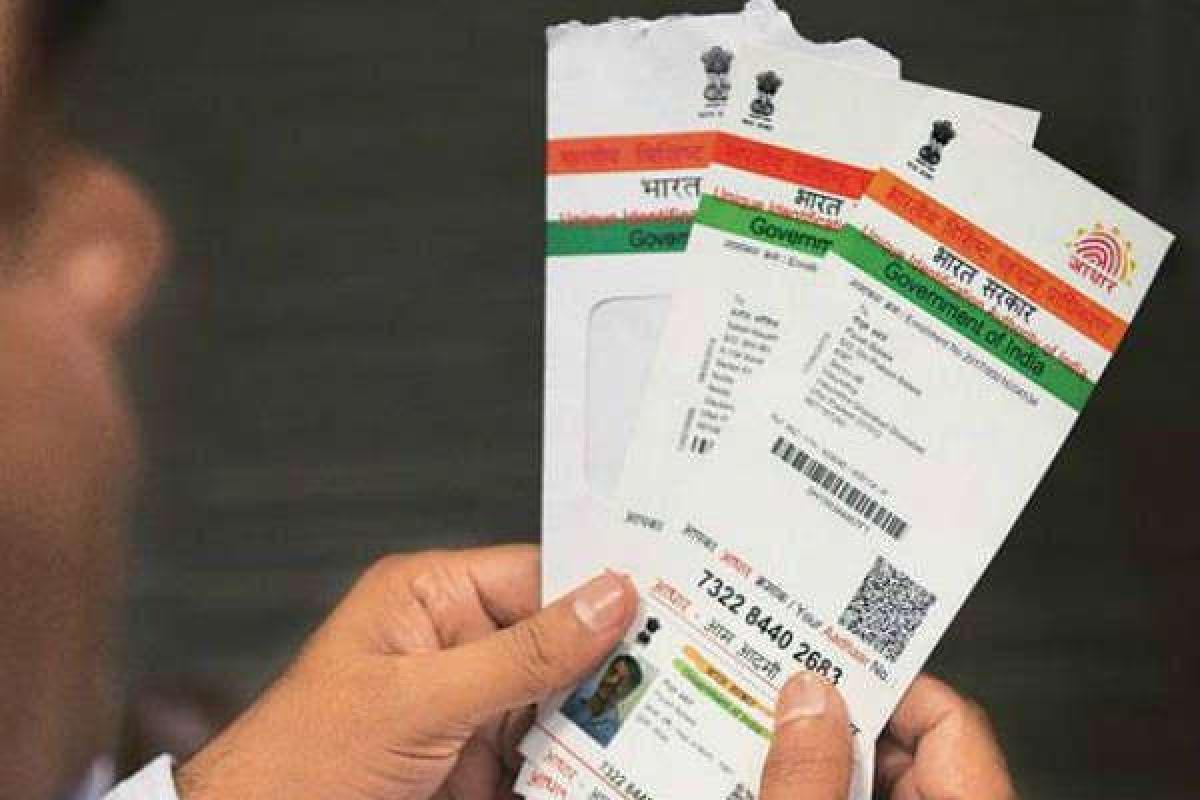Live
- G20 Leaders Will Talk About Climate, Taxes, and Trump's Return in Brazil
- COP29: CDRI announces $8 million funding for 12 projects to address climate crisis
- Anti-Telgu remarks: Actor Kasthuri Shankar moves court for bail
- Samsung AR Smart Glasses Set to Launch in 2025, Featuring Ray-Ban Meta-Like Design
- Kerala Industries Minister confident that new policy will boost plantation sector
- Madras HC plans inter-departmental monitoring committee to combat drug use in TN
- Bihar: Spotted deer dies due to heart attack in Banka district
- Mushtaq Ali T20: Shami to spearhead Bengal bowling attack, Gharami named captain
- Kharge's clarion call to oust Maharashtra's BJP-backed MahaYuti
- Why Ukraine’s Use of US Missiles Against Russia Could Lead to World War 3
Just In

A bench of Acting Chief Justice Gita Mittal and Justice C Hari Shankar appointed UIDAI counsel Zohab Hussain as a local commissioner and asked him to visit the two slums and ration shops randomly and see what difficulties people are facing in accessing the food facilities due to want of Aadhaar.
The Delhi High Court today appointed a local commissioner to inspect South Delhi slums where people are facing difficulty in getting subsidised foodgrain under the public distribution system (PDS) due to lack of Aadhaar cards.
The direction came when a petitioner NGO's counsel told the court that people living in two slums of Malviya Nagar were not only facing difficulty in getting subsidised foodgrains, but the biometric machines for Aaadhaar were also not working due to lack of proper network.
A bench of Acting Chief Justice Gita Mittal and Justice C Hari Shankar appointed UIDAI counsel Zohab Hussain as a local commissioner and asked him to visit the two slums and ration shops randomly and see what difficulties people are facing in accessing the food facilities due to want of Aadhaar.
During the hearing, Delhi government's counsel sought time to file reply on the petition which seeks disbursal of subsidised foodgrains to the beneficiaries under the national food security act (NFSA) without Aadhaar cards.
Under the NFSA which was rolled out across the country in November last year, five kgs of foodgrains per person is provided each month at Rs. 1-3 per kg to over 80 crore people.
The court asked the petitioner organisation, Delhi Rozi Roti Adhikar Abhiyan, to file its rejoinder by September one, the next date of hearing.
The court was also informed that a petition on similar lines was also pending before the Supreme Court which would hear it during summer vacations on June 27.
The Centre had earlier told the court that Aadhaar was made mandatory to ensure that the poor get subsidised foodgrains under the PDS. Terming PDS as a "misused system", it had said that through Aadhaar, the endeavour was to ensure that the real beneficiaries get foodgrain.
Aadhaar is a 12-digit unique identification number issued by the Unique Identification Authority of India (UIDAI) after collecting biometric data of the citizens.
The PIL has sought quashing of the Centre's February 8 notification making Aadhaar mandatory for availing benefits under the NFSA. The notification came into effect from February 8 in all states and UTs, except Assam, Meghalaya and Jammu and Kashmir.
The petition says the notification violates the basic principle of law enshrined in Articles 14 (equality) and 21 (right to life) of the Constitution.
The organisation has moved the high court seeking to enforce the fundamental right to food to the residents of Delhi, particularly the poor and vulnerable groups which are dependent on subsidised foodgrain distributed by the Delhi government through the PDS, which it claims is severely impaired by the notification.
Challenging the constitutional vires of the Aadhaar/UID project, the plea has said that due to the enforcement of the notification, people are being deprived of their rightful entitlement under the NFSA.
It said the apex court in an interim order in October 2015 had allowed voluntary use of Aadhaar and ruled that no citizen can be denied a service or subsidy for want of it.
The plea further alleged that the Centre's decision to make Aadhaar mandatory for subsidised food goes against the apex court's interim order and places the most vulnerable at the risk of being left out of the food security net.

© 2024 Hyderabad Media House Limited/The Hans India. All rights reserved. Powered by hocalwire.com







